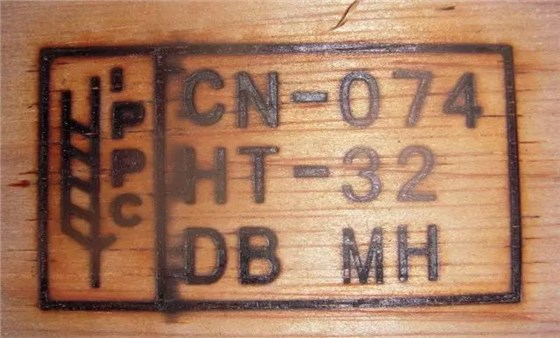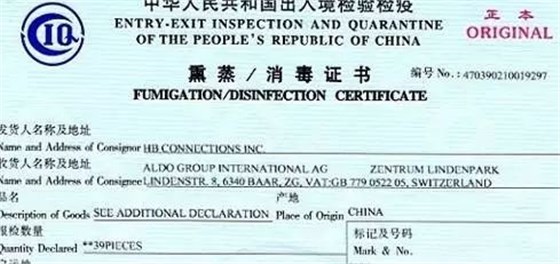Fumigation of Wooden Packaging and Wood Products: A Guide
What is Fumigation?
Fumigation is a pest control process used to eliminate insects, larvae, and other harmful organisms from wooden materials. It involves treating wooden packaging and wood products with chemicals or heat to meet international shipping standards and prevent the spread of invasive species.
Why is Fumigation Important?
Wooden packaging, such as pallets, crates, and dunnage, can harbor pests that pose serious threats to ecosystems and agriculture. To mitigate these risks, many countries require wooden materials used in international freight forwarding services to undergo fumigation. This ensures compliance with the International Standards for Phytosanitary Measures (ISPM 15), a global guideline for wood packaging treatment.
Fumigation Methods
There are two primary methods for fumigating wooden packaging and products:
- Heat Treatment (HT): Wooden materials are heated to a core temperature of 56°C (132.8°F) for a minimum of 30 minutes. This method effectively kills pests and their eggs.
- Chemical Fumigation: Methyl bromide or other approved chemicals are used in a sealed environment to disinfect the wood. While effective, this method requires careful handling due to potential environmental and health risks.
After fumigation, the outer packaging will be stamped with the IPPC mark. And a FUMIGATION/DISINFECHON CERTIFICATE will be provided


ISPM 15 Compliance
ISPM 15 outlines the standards for treating wood packaging materials used in international trade. Treated materials are marked with a standardized stamp, including:
- Country code
- Unique producer code
- Treatment method (e.g., HT or MB for Methyl Bromide)
This mark, often referred to as the "wheat stamp," certifies that the wood has been properly treated and is safe for global logistics services.
Regulations by Region
Different regions and countries enforce fumigation standards strictly. For example:
- United States: Requires all wooden packaging to comply with ISPM 15, with strict penalties for non-compliance.
- European Union: Enforces ISPM 15 for all imported wooden packaging materials.
- Asia: Many countries, including China and Japan, have adopted ISPM 15 regulations, with additional pest control measures in some cases.
Ensuring compliance with these regulations is crucial, especially for companies involved in bulk carrier shipping companies, as failure to meet these standards can lead to shipment delays and rejections. Large vessels transporting wood-based cargo must adhere to fumigation requirements to maintain smooth international trade.
For businesses handling warehousing and storage, fumigated wood packaging is also essential for maintaining pest-free environments in storage facilities. Properly treated pallets and crates help protect inventory from infestation, making them a crucial part of efficient supply chain management.
Conclusion
Fumigation of wooden packaging is a critical step in ensuring safe and efficient global trade. Compliance with ISPM 15 regulations helps prevent the spread of pests, protects ecosystems, and facilitates seamless shipping operations. Whether you are involved in international shipping, bulk cargo transportation, or specialized logistics, following proper fumigation guidelines ensures that your shipments move smoothly across international borders.
Businesses should stay updated on evolving fumigation regulations and consider alternative materials when applicable. Investing in the correct fumigation methods not only ensures regulatory compliance but also enhances supply chain efficiency and cost-effectiveness.
For companies handling storage and distribution, ensuring that wooden pallets and crates are properly treated is essential for maintaining pest-free environments and safeguarding inventory. As global trade continues to grow, adopting the right fumigation practices will remain a key factor in successful international shipping.
For more details on fumigation services and compliance requirements, CargoesPi is here to help. Contact us today for expert guidance and tailored solutions.
Frequently Asked Questions (FAQs)
-
1. Is fumigation necessary for all wooden packaging used in international shipping?
Yes, most countries require fumigation for all wooden packaging materials used in international trade to comply with ISPM 15 regulations. This includes wooden pallets, crates, and dunnage used in freight forwarding services.
-
2. How do I know if my wooden packaging is ISPM 15 compliant?
Treated wooden packaging will bear an official IPPC stamp, which includes the country code, a unique producer code, and the treatment method (HT for heat treatment or MB for methyl bromide fumigation).
-
3. Can I use alternative materials to avoid fumigation requirements?
Yes, non-wood packaging materials such as plastic, metal, or engineered wood (like plywood) are not subject to ISPM 15 fumigation regulations. These are often used in sea freight heavy lifting shipments to avoid additional treatment processes.
-
4. How long does the fumigation process take?
The duration depends on the method used. Heat treatment (HT) typically takes a few hours, while chemical fumigation may take up to 24-48 hours, including aeration time.
-
5. What happens if my shipment does not meet fumigation regulations?
If wooden packaging does not comply with ISPM 15, authorities may reject, quarantine, or fumigate the shipment at an additional cost. This can lead to significant delays and increased expenses for businesses involved in international logistics services.
About the Author
Elvin, founder of CargoesPi, brings over five years of expertise in global shipping and supply chain optimization. Member of Fr. Meyer's Sohn (FMS), a leading freight forwarder, he specializes in end-to-end cargo solutions. Beyond logistics, Elvin leverages his coding skills to develop digital tools for warehousing, shipment management, and e-commerce integration, streamlining operations for businesses worldwide.

